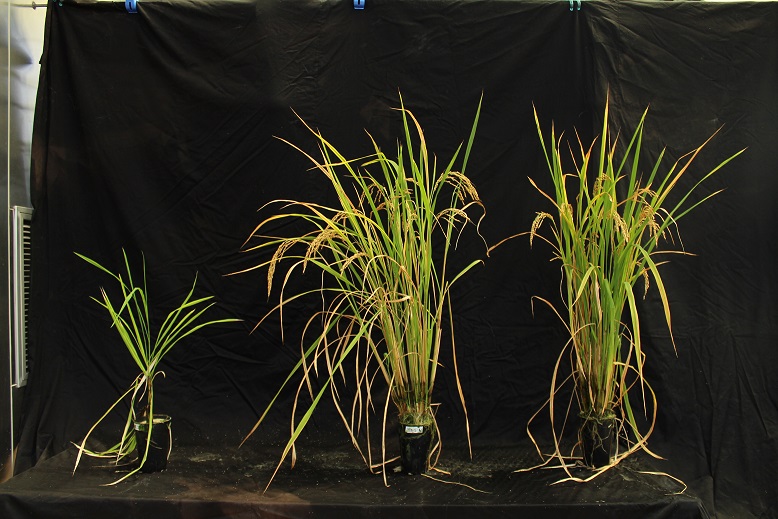Plants and Iron: Contributing to Food Production 2 and Environmental Issues
Development of rice resistant to iron deficiency in calcareous soil
If plants do not have enough iron, they cannot synthesize chlorophyll, which is necessary for photosynthesis, and cannot grow. In particular, in alkaline soil such as calcareous soil, iron does not dissolve into the soil and cannot be absorbed by plants, so iron deficiency is particularly pronounced. By simultaneously introducing the ferrous iron reductase gene, the mugineate synthase gene, and enhancing the expression of transcription factors related to iron absorption into rice, the ability to absorb rice iron from soil is enhanced, and various cultivation conditions are improved. Has produced rice with better resistance to iron deficiency. Poster presentation related to this research theme

Left:Normal Rice Right:Fe deficiency tolerant Rice







